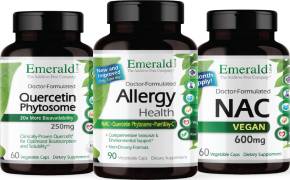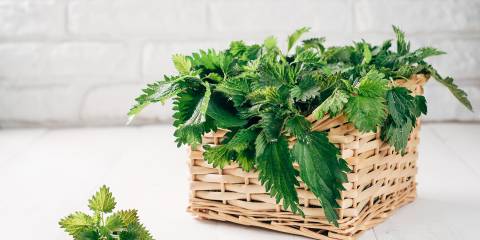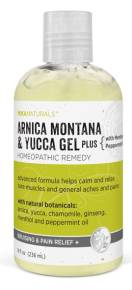As Spring arrives, the leaves on the trees and the bulbs we planted last year are not the only companions the season offers.
Allergies come along with these new beginnings, and while many people turn to antihistamines for relief, there are natural remedies that can help you embrace the outdoors fearlessly.
Natural Remedies for Springtime Allergies
-
Fight Allergies with Astragalus
Astragalus stimulates the immune system as it eases allergy symptoms. Studies show the greatest benefit of this traditional Chinese medicine is that it provides relief from that annoying runny nose.
-
Bromelain to Help Reduce Sinus Inflammation
Bromelain, an enzyme found in the stem and fruit of the pineapple plant, breaks down proteins in swollen tissues, like inflamed sinuses. Look for bromelain in supplement form.
-
Boost Your Immune System Through Allergy Season with Garlic
Garlic has years of research behind it supporting its use for health issues ranging from high blood pressure to digestion problems, and, yes, even springtime allergies and sinus congestion. Garlic cloves may give a boost to the immune system and fight coughs, earaches, and bronchitis, making it popular during allergy season.
-
Keep Cough & Allergies at Bay with Ginkgo Biloba
Ginkgo biloba has been used in Chinese herbal medicine for more than 5,000 years. This known anti-inflammatory helps treat symptoms of allergies and coughs.
-
Quercetin as a Natural Antihistamine
Quercetin is an antioxidant found in almost all herbs and plant foods. Quercetin eases allergy symptoms as it halts the growth of cells that secrete histamine, but it doesn’t cause drowsiness like antihistamines. It is especially abundant in apples and green tea. For maximum effectiveness, consider taking this ingredient in supplement form.
-
Let Stinging Nettle Battle Back That Allergy Attack
Don’t let the name scare you! Nettles, when cooked or dried and eaten as a vegetable, provide an antihistamine. Nettles may also be boiled and made into tea, added to soups or stews, or taken in supplement forms.
-
Reduce Pollen Allergens with Yogurt
If eaten daily during allergy season, yogurt can help reduce grass pollen allergies, according to research from UC Davis.
-
Clear Allergies Away with a Neti Pot Day to Day
Saline nasal irrigation using a neti pot clears irritants and mucus from the nasal passages. Use sterile, distilled, or previously boiled water. Wash the device after each use.





